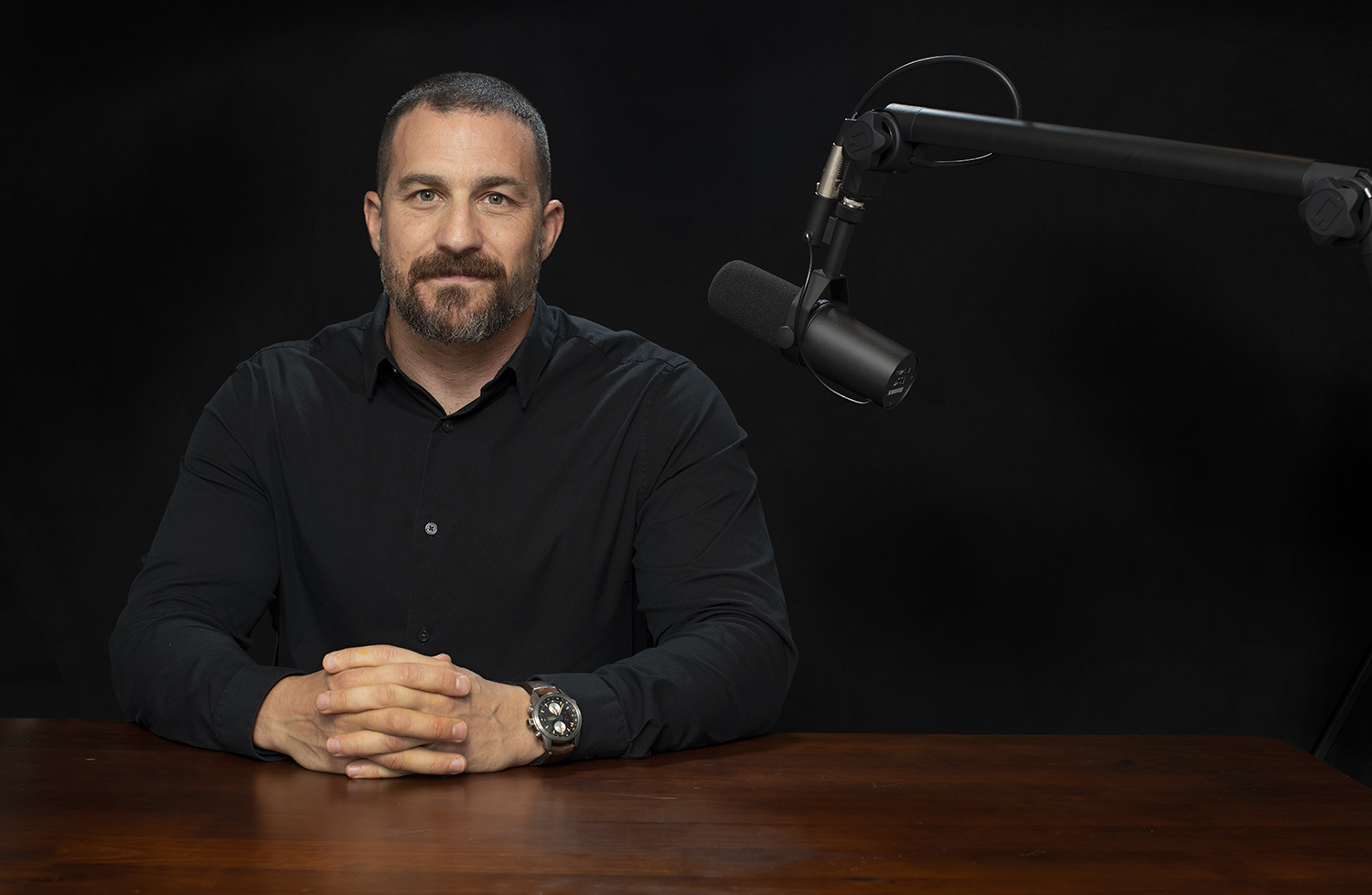Unlocking Andrew Huberman's Net Worth: A Comprehensive Review
Andrew Huberman Net Worth refers to the collective value of all Andrew Huberman's assets minus his liabilities, representing his overall financial standing. For instance, if Huberman owns $5 million in assets, such as his house, car, investments, and art collection, and owes $1 million in liabilities, like mortgages, credit card debt, and business loans, his net worth would be $4 million.
Knowing an individual's net worth is important for assessing their financial health, making investment decisions, and comparing wealth over time. It can also shed light on an individual's earning potential, lifestyle choices, and overall financial acumen. Historically, net worth has been a key indicator of social and economic status, with high net worth individuals often holding significant influence and access to resources.
This article delves into the details of Andrew Huberman's net worth, exploring its components, growth trajectory, and implications for his financial future.
Andrew Huberman Net Worth
Understanding the key aspects of Andrew Huberman's net worth is crucial for assessing his financial standing, investment decisions, and overall financial health.
- Assets
- Liabilities
- Income
- Expenses
- Investments
- Cash Flow
- Debt
- Financial Goals
These aspects provide a comprehensive overview of Huberman's financial situation, allowing for informed analysis and decision-making. For instance, tracking his income and expenses over time can reveal spending patterns and identify areas for potential savings or investment. Additionally, understanding his investment strategy and risk tolerance can provide insights into his financial goals and long-term financial planning.
| Andrew Huberman | Bio Data ||---|---|| Full Name: | Andrew D. Huberman, Ph.D. || Date of Birth: | February 26, 1975 || Place of Birth: | Palo Alto, California, U.S. || Occupation: | Neuroscientist, Stanford Professor, Podcast Host || Education: | B.S. in Biological Sciences, Stanford University; Ph.D. in Neurobiology, University of California, Berkeley || Net Worth: | Estimated $2-5 million |
Assets
Assets play a pivotal role in determining Andrew Huberman's net worth, representing the resources and value he owns. Assets can be broadly categorized into two types: current assets and non-current assets. Current assets include cash, cash equivalents, and other assets that can be easily converted into cash within a year, such as inventory and accounts receivable. Non-current assets, on the other hand, are long-term investments and possessions that are not easily convertible into cash, such as real estate, equipment, and intellectual property.
The value of Huberman's assets directly contributes to his overall net worth. For instance, if Huberman owns a house worth $1 million and has $500,000 in investments, these assets would contribute $1.5 million to his net worth. As his assets appreciate in value over time, so too does his net worth. Conversely, if the value of his assets declines, his net worth will also decrease.
Understanding the composition and value of Huberman's assets is crucial for assessing his financial health and making informed investment decisions. By carefully managing his assets and making strategic investments, Huberman can increase his net worth over time and secure his financial future.
Liabilities
Liabilities represent the financial obligations that Andrew Huberman owes to other entities or individuals. These obligations can arise from various sources, such as loans, mortgages, credit card debt, and unpaid bills. Unlike assets, which contribute positively to net worth, liabilities have the opposite effect, reducing an individual's overall financial standing.
Understanding the relationship between liabilities and Andrew Huberman's net worth is crucial for assessing his financial health and making informed financial decisions. High levels of liabilities can strain an individual's finances, limiting their ability to invest, save, and build wealth. Conversely, managing liabilities effectively can free up cash flow, improve credit scores, and increase net worth over time.
Real-life examples of liabilities within Andrew Huberman's net worth could include his mortgage, car loan, and any outstanding credit card balances. By carefully managing these liabilities, such as making timely payments and negotiating lower interest rates, Huberman can minimize their impact on his net worth and improve his overall financial position.
Practically, understanding the connection between liabilities and net worth empowers individuals to make informed decisions about borrowing and debt management. It highlights the importance of financial planning, budgeting, and responsible spending habits. By proactively managing liabilities and minimizing unnecessary debt, individuals can increase their net worth, secure their financial future, and achieve their long-term financial goals.
Income
Income plays a pivotal role in determining Andrew Huberman's net worth, representing the inflow of resources that contribute to his overall wealth. Income can stem from various sources, such as employment, investments, and business ventures, and directly impacts an individual's financial standing.
As Huberman earns income, it increases his net worth. For instance, if he earns $100,000 in a year and has no expenses, his net worth would increase by $100,000. Conversely, if his expenses exceed his income, his net worth would decrease. Understanding the relationship between income and net worth is crucial for financial planning and decision-making.
Real-life examples of income within Andrew Huberman's net worth could include his salary as a professor at Stanford University, revenue from his popular podcast, and earnings from his investments. By diversifying his income streams and maximizing his earning potential, Huberman can increase his net worth and achieve his long-term financial goals.
Practically, understanding the connection between income and net worth empowers individuals to make informed choices about their careers, investments, and spending habits. It highlights the importance of budgeting, saving, and investing wisely. By intentionally increasing their income and managing expenses effectively, individuals can accumulate wealth, secure their financial future, and live a more fulfilling life.
Expenses
Expenses are a crucial aspect of Andrew Huberman's net worth, representing the outflow of resources that reduce his overall wealth. Understanding the types and implications of expenses is essential for managing finances effectively and making informed financial decisions.
- Fixed Expenses: These expenses remain relatively constant from month to month, such as rent or mortgage payments, car payments, and insurance premiums.
- Variable Expenses: These expenses fluctuate based on usage or consumption, such as groceries, utilities, and entertainment.
- Discretionary Expenses: These expenses are not essential and can be adjusted or eliminated, such as dining out, travel, and hobbies.
- Debt Repayment: This includes payments towards credit cards, loans, and mortgages, which reduce both expenses and liabilities.
By carefully managing expenses, Andrew Huberman can minimize their impact on his net worth and increase his overall financial standing. This includes reducing unnecessary spending, negotiating lower bills, and exploring alternative cost-effective options. Understanding the relationship between expenses and net worth empowers individuals to make informed choices about their spending habits, prioritize their financial goals, and secure their financial future.
Investments
Investments form a pivotal aspect of Andrew Huberman's net worth, representing the allocation of resources with the potential to generate future returns and increase his overall wealth. Understanding the types and implications of investments is crucial for assessing his financial standing and making informed financial decisions.
- Stocks and Bonds: Huberman may invest in stocks and bonds, which represent ownership shares in companies and debt obligations of governments or corporations, respectively. These investments offer the potential for capital appreciation and dividend income.
- Real Estate: Huberman could invest in residential or commercial properties, which can generate rental income and appreciate in value over time. Real estate investments require substantial capital but can provide diversification and potential long-term returns.
- Venture Capital: Huberman may invest in early-stage startups and emerging companies through venture capital funds or direct investments. These investments carry higher risk but also offer the potential for significant returns if the companies succeed.
- Alternative Investments: Huberman could diversify his portfolio with alternative investments such as hedge funds, private equity, or commodities. These investments offer unique risk and return profiles, allowing Huberman to spread his investments across different asset classes.
By carefully managing his investments and diversifying his portfolio, Andrew Huberman can potentially increase his net worth and secure his financial future. Understanding the dynamics of investments and their role in his overall financial standing is crucial for making informed decisions and achieving his long-term financial goals.
Cash Flow
Cash flow plays a critical role in assessing Andrew Huberman's net worth by providing insights into the movement of money in and out of his financial accounts. Understanding the various facets of cash flow helps analyze his liquidity, solvency, and overall financial health.
- Income: This refers to the money Huberman earns from his various sources, such as his salary, investments, and business ventures. Income directly contributes to his cash flow and overall net worth.
- Expenses: Expenses represent the money Huberman spends on his lifestyle and business operations. Expenses reduce his cash flow and impact his net worth.
- Savings: Savings represent the portion of Huberman's income that he sets aside for future use or investments. Savings increase his cash flow and contribute to his overall net worth.
- Investments: Huberman's investments, such as stocks, bonds, and real estate, can generate cash flow through dividends, interest, and rental income. These investments can enhance his overall cash flow and net worth.
By analyzing these facets of cash flow, we gain a deeper understanding of Andrew Huberman's financial situation, his ability to meet short-term obligations, and his strategies for long-term wealth accumulation. A positive cash flow indicates Huberman's financial stability, while a negative cash flow may require adjustments to his spending or income-generating activities to maintain a healthy financial position.
Debt
Debt represents a crucial aspect of Andrew Huberman's net worth, influencing his financial stability and overall financial health. Understanding the different facets of debt provides valuable insights into his financial obligations and their impact on his net worth.
- Mortgages: Mortgages are long-term loans secured by real estate, typically used to finance the purchase of a home. Huberman may have a mortgage on his primary residence or investment properties, which would contribute to his debt.
- Business Loans: Business loans are borrowed funds used to finance business operations, such as equipment purchases, inventory, or expansion. If Huberman owns a business, he may have business loans outstanding, which would affect his net worth.
- Credit Card Debt: Credit card debt arises from unpaid balances on credit cards. High credit card debt can negatively impact Huberman's credit score and overall financial standing.
- Personal Loans: Personal loans are unsecured loans used for various purposes, such as debt consolidation, home renovations, or unexpected expenses. Huberman may have personal loans to supplement his cash flow or cover specific expenses.
Managing debt effectively is crucial for Huberman's financial well-being. High levels of debt can strain his cash flow, limit his investment opportunities, and potentially damage his creditworthiness. By carefully managing his debt obligations, Huberman can maintain a healthy financial position and preserve his net worth.
Financial Goals
Financial goals play a pivotal role in shaping Andrew Huberman's net worth, guiding his financial decisions and long-term wealth accumulation strategies. Understanding the various aspects of his financial goals provides insights into his financial priorities, risk tolerance, and overall financial trajectory.
- Retirement Planning: Huberman may have specific financial goals related to retirement, such as accumulating a target retirement nest egg, maximizing retirement income, and minimizing tax implications.
- Investment Objectives: Huberman's financial goals likely include investment objectives, such as capital growth, income generation, or a combination of both. His investment strategy and portfolio allocation would be tailored to achieve these objectives.
- Education Funding: If Huberman has children or plans to further his education, he may have financial goals dedicated to funding education expenses, ensuring the financial well-being of his family and securing future opportunities.
- Legacy Planning: Huberman's financial goals may extend beyond his lifetime, encompassing legacy planning strategies. These could include charitable donations, estate planning, and ensuring the preservation and distribution of his wealth according to his wishes.
Andrew Huberman's financial goals are closely intertwined with his net worth, as they influence his investment decisions, savings habits, and overall financial management. By setting clear and achievable financial goals, Huberman can align his financial actions with his long-term objectives, maximizing his net worth and securing his financial future.
In conclusion, Andrew Huberman's net worth is a reflection of his multifaceted financial standing, encompassing assets, liabilities, income, expenses, investments, cash flow, debt, and financial goals. Understanding the interplay between these components provides insights into his financial health, wealth accumulation strategies, and overall financial trajectory.
Key takeaways include the importance of managing debt effectively, setting clear financial goals, and diversifying investment portfolios to maximize net worth and secure financial stability. By carefully managing his financial affairs, Huberman can continue to build upon his wealth and achieve his long-term financial aspirations.
Justin hartley wife sofia pernas couple up
Jules leblanc real name age height sister
Peyton manning s wife ashley manning bio





ncG1vNJzZmifmaS9b63MrGpnnJmctrWty6ianpmeqL2ir8SsZZynnWSur7DRnq5moKWXsrO5wKdkp52kYsSwvtOhZaGsnaE%3D